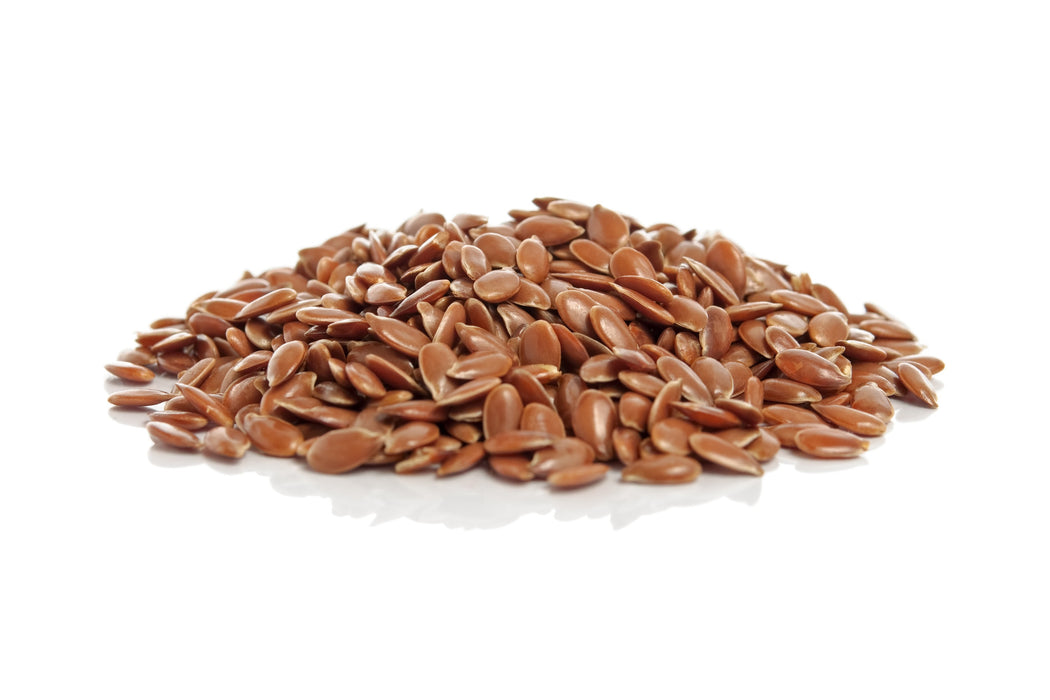Flaxseed Whole Brown
-
Botanical Name: Linum usitatissimum
Flaxseed is the seed from the plant Linum usitatissimum. The seed or the seed oil is used to make medicine.
People use flaxseed for many conditions related to the gastrointestinal (GI) tract, including ongoing constipation, colon damage due to overuse of laxatives, diarrhea, inflammation of the lining of the large intestine (diverticulitis), irritable bowel syndrome (IBS) or irritable colon, sores in the lining of the large intestine (ulcerative colitis), inflammation of the lining of the stomach (gastritis), and inflammation of the small intestine (enteritis).
Flaxseed is also used for disorders of the heart and blood vessels, including high cholesterol, “hardening of the arteries” (atherosclerosis), high blood pressure (hypertension), and coronary artery disease.
Flaxseed is also used for acne, attention deficit-hyperactivity disorder (ADHD), kidney problems in people with a disease called systemic lupus erythematosus (SLE), symptoms of menopause, and breast pain. It is also used for diabetes, obesity and weight loss, HIV/AIDS, depression, bladder infections, malaria, and rheumatoid arthritis.
Some people use flaxseed to lower their risk of getting weak bones (osteoporosis) and to protect against breast cancer, lung cancer, colon cancer, and prostate cancer.
Flaxseed is a good source of dietary fiber and omega-3 fatty acids. The fiber in flaxseed is found primarily in the seed coat. Taken before a meal, flaxseed fiber seems to make people feel less hungry, so that they might eat less food. Researchers believe this fiber binds with cholesterol in the intestine and prevents it from being absorbed. Flaxseed also seems to make platelets, the blood cells involved in clotting, less sticky. Overall, flaxseed’s effects on cholesterol and blood clotting may lower the risk of “hardening of the arteries” (atherosclerosis).
-
Botanical Name: Linum usitatissimum
• Lowering cholesterol
• Diabetes
• Constipation
• Irritable bowel syndrome
• Cancer prevention



























































































